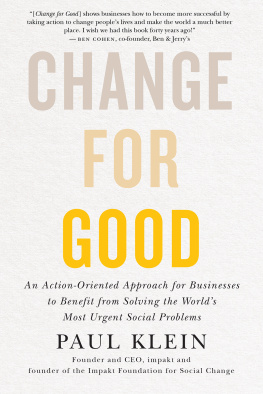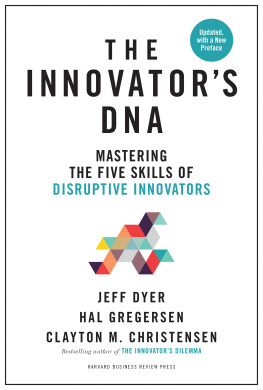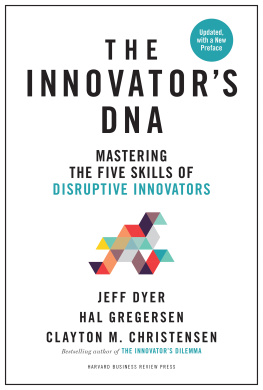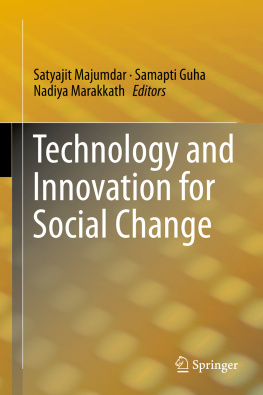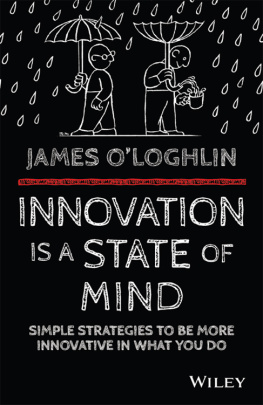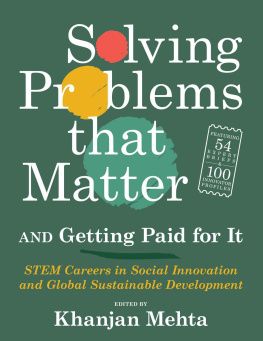Contents
List of Table
List of Figures
Guide
Pagebreaks of the print version
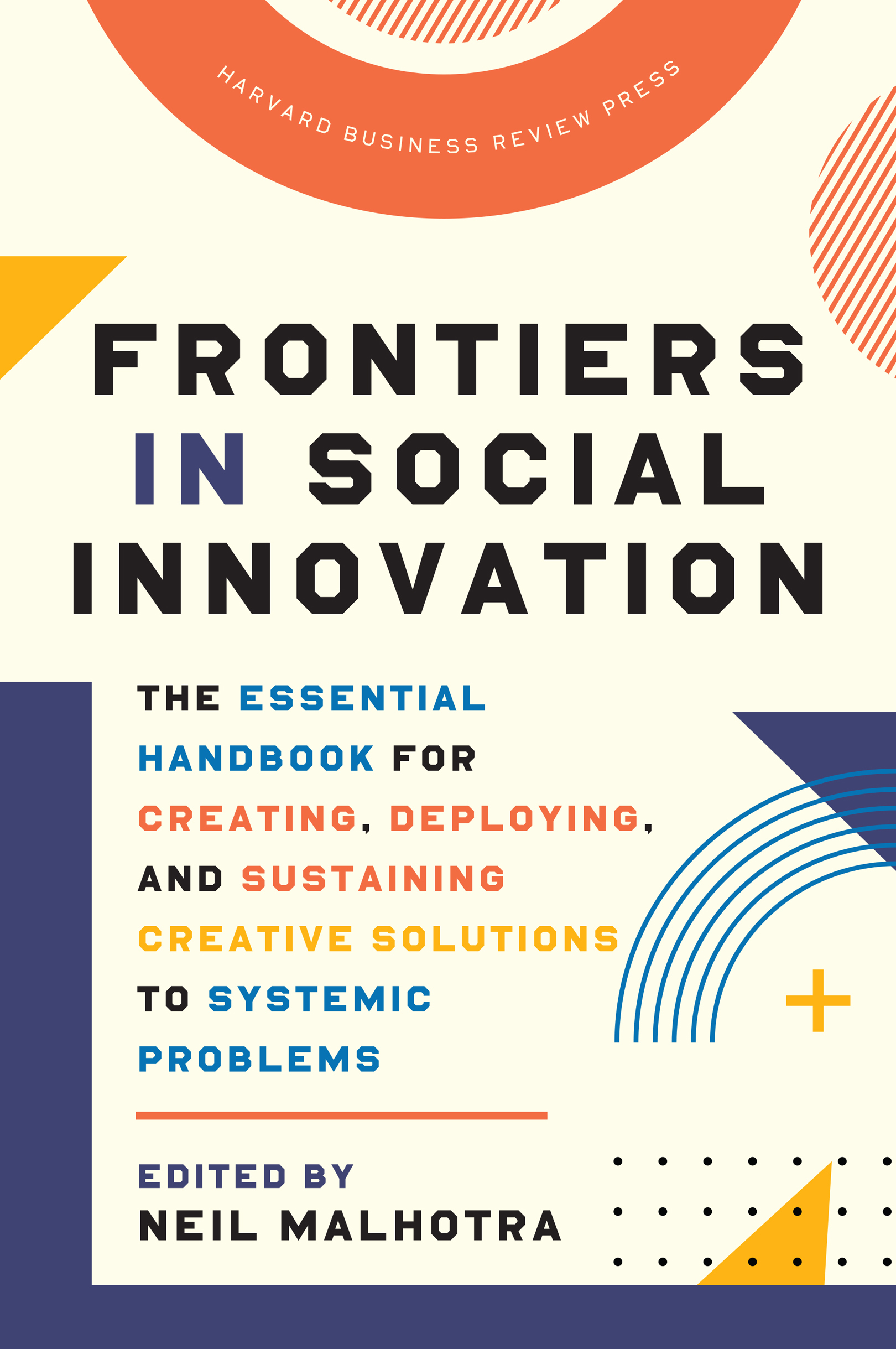

HBR Press Quantity Sales Discounts
Harvard Business Review Press titles are available at significant quantity discounts when purchased in bulk for client gifts, sales promotions, and premiums. Special editions, including books with corporate logos, customized covers, and letters from the company or CEO printed in the front matter, as well as excerpts of existing books, can also be created in large quantities for special needs.
For details and discount information for both print and ebook formats, contact .
Copyright 2022 Harvard Business School Publishing Corporation
All rights reserved
No part of this publication may be reproduced, stored in or introduced into a retrieval system, or transmitted, in any form, or by any means (electronic, mechanical, photocopying, recording, or otherwise), without the prior permission of the publisher. Requests for permission should be directed to , or mailed to Permissions, Harvard Business School Publishing, 60 Harvard Way, Boston, Massachusetts 02163.
The web addresses referenced in this book were live and correct at the time of the books publication but may be subject to change.
Library of Congress Cataloging-in-Publication Data
Names: Malhotra, Neil Ankur, editor.
Title: Frontiers in social innovation / edited by Neil Malhotra.
Description: Boston, Massachusetts : Harvard Business Review Press, [2021] |
Identifiers: LCCN 2021034680 (print) | LCCN 2021034681 (ebook) | ISBN 9781647821418 (hardcover) | ISBN 9781647821425 (ebook)
Subjects: LCSH: Social entrepreneurship. | Social change. | IndustriesSocial aspects. | Social responsibility of business.
Classification: LCC HD60 .F77 2021 (print) | LCC HD60 (ebook) | DDC 338/.04dc23
LC record available at https://lccn.loc.gov/2021034680
LC ebook record available at https://lccn.loc.gov/2021034681
ISBN: 978-1-64782-141-8
eISBN: 978-1-64782-142-5
The paper used in this publication meets the requirements of the American National Standard for Permanence of Paper for Publications and Documents in Libraries and Archives Z39.48-1992.
Contents
- NEIL MALHOTRA
- LAURA ARRILLAGA-ANDREESSEN
- KIM STARKEY
- WILLIAM F. MEEHAN III
- PAUL BREST AND COLLEEN HONIGSBERG
- BERNADETTE CLAVIER
- MATT BANNICK
- STEVE DAVIS
- GLORIA LEE
- BERNADETTE CLAVIER
- KIM STARKEY
- STUART COULSON
- ROB URSTEIN
- STEVE DAVIS
- SARA J. SINGER, SEVDA MEMET, SURUCHI KOTHARI, AND GORDON BLOOM
- STEPHEN COMELLO, JULIA REICHELSTEIN, AND STEFAN REICHELSTEIN
Introduction _____________________________________ Social Innovation in the Twenty-First Century _____________________________________
Neil Malhotra
S ocial innovation is the process of developing and deploying effective solutions to challenging and systemic social and environmental issues in support of social progress. It is not the prerogative or privilege of any organizational form or legal structure.
Solutions often require the active collaboration of stakeholders across government, business, and the nonprofit world. A diverse group of peopleranging from students to seasoned executiveshave become increasingly interested in social innovation as a means of leveraging organizations to solve social problems. This volumewhich brings together leading academics, practitioners, thinkers, and leadersdiscusses several important topics at the cutting edge of the field of social innovation.
Twenty years ago, social innovation was dominated by nonprofits and primarily funded through philanthropy or government aid. People interested in becoming social innovators tended to narrowly focus on building skills in nonprofit management. But the last few decades have witnessed a dramatic transformation in social innovation in that mission-driven for-profit companies as well as newer organizational forms (such as benefit corporations and companies certified as B Corporations) have emerged as powerful drivers of social change. In tandem with the diversity of organizational forms, government money and philanthropic capital are no longer the only sources of funding. Impact investing funds, as well as traditional sources of money, such as venture capital, have helped fuel the social innovation engine. At the same time, nonprofits have begun to explore more-creative business models that take advantage of earned revenue rather than having to constantly raise money.
Three Key Concepts in Social Innovation
While the organizational forms that constitute social innovation are increasingly diverse, the field has also become more disciplined, centering on three core concepts. First, many funders require that social enterprises have a theory of change, or a conceptual pathway for how the social intervention will actually produce the social change it purports to make. A theory of change is quite simply a set of causal hypotheses that trace inputs to activities to outputs, and ultimately to outcomes and impact. One crucial benefit of a theory of change is that it clarifies that outputs, outcomes, and impact are not all the sameeven though many social enterprises have conflated them for years. For example, an educational technology startup must explain how its outputs (e.g., number of students using a gamified math app) translate into outcomes (improved standardized test scores) and ultimately impact (greater educational attainment and better life outcomes for students). It is not enough simply to point to a large number of users; that could reflect an addictive app with little educational value. Though the components of a theory of change are just hypotheses, the framework helps social entrepreneurs think through the causal logic of their proposed solutions. A more thorough exploration of the theory of change methodology can be found in Gloria Lees .
BIOGRAPHY
NEIL MALHOTRA is the Edith M. Cornell Professor of Political Economy at the Stanford Graduate School of Business, where he serves as the Louise and Claude N. Rosenberg Jr. Director of the Center for Social Innovation. He has published over seventy-five academic articles in leading journals on numerous topics, including the role of business in society. He is the author of the forthcoming book Leading with Values: Strategies for Making Ethical Decisions in Business and Life .
Second, social innovators have to bring data to the theoretical hypotheses embedded in the theory of change. This is where the concept of impact measurement comes in. Social scientists have identified the gold standard approach for evaluating social interventionsthe randomized controlled trial (RCT). In practice, RCTs can be difficult to implement quickly. Hence, many social entrepreneurs rely on less-rigorous but more-efficient lean data approaches (e.g., surveys, interviews, and focus groups) that allow rapid iteration and improvements. In , Stephen Comello, Julia Reichelstein, and Stefan Reichelstein explain the challenges involved in measuring environmental impact and carbon offsets.
Furthermore, RCTs often cannot test all the proposed theoretical mechanisms outlined in a theory of change. Nor can they evaluate general equilibrium effects of how an intervention may create markets (see Matt Bannicks on how social enterprises can have market-creating spillovers). Nonetheless, its becoming more important for social enterprises to measure impactparticularly given that impact investing funds seek to report these metricsrather than just assert its existence.


